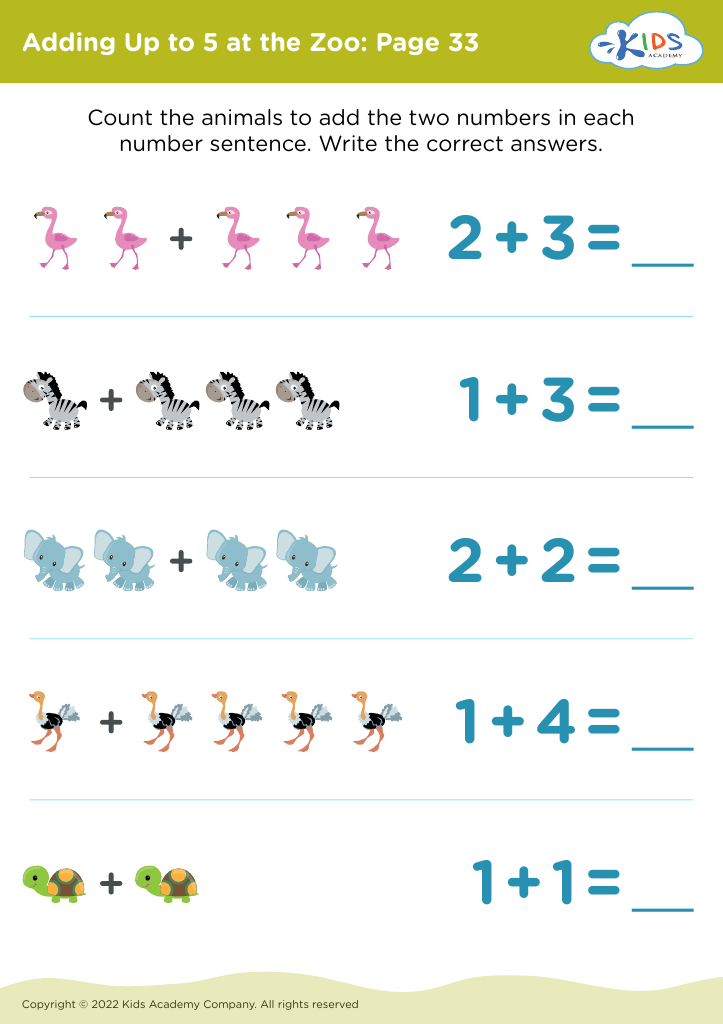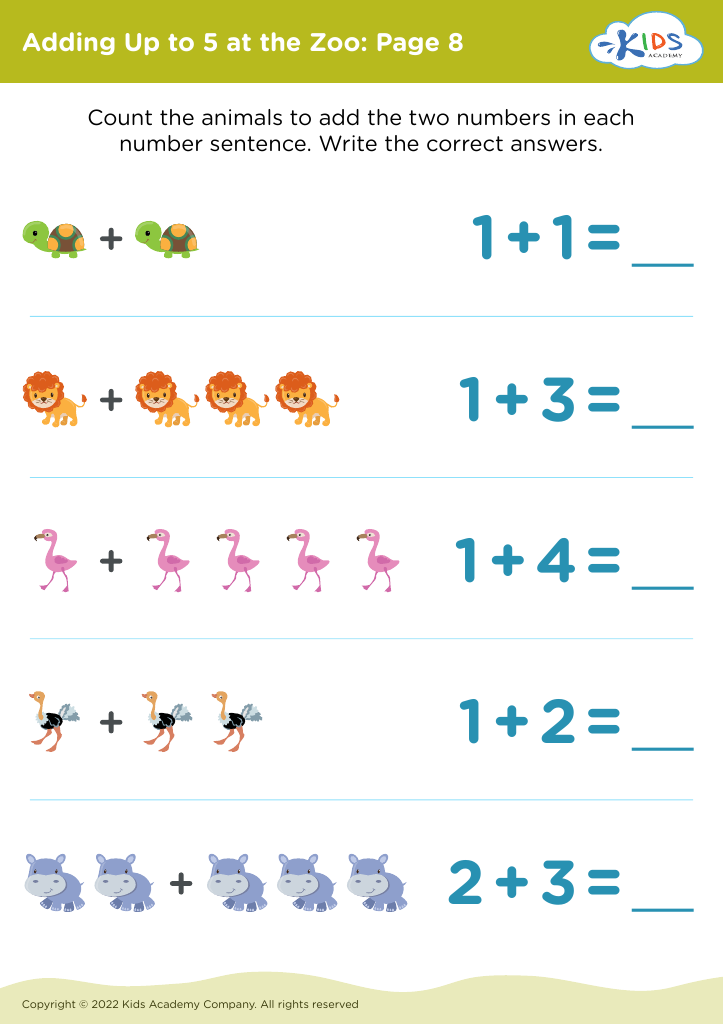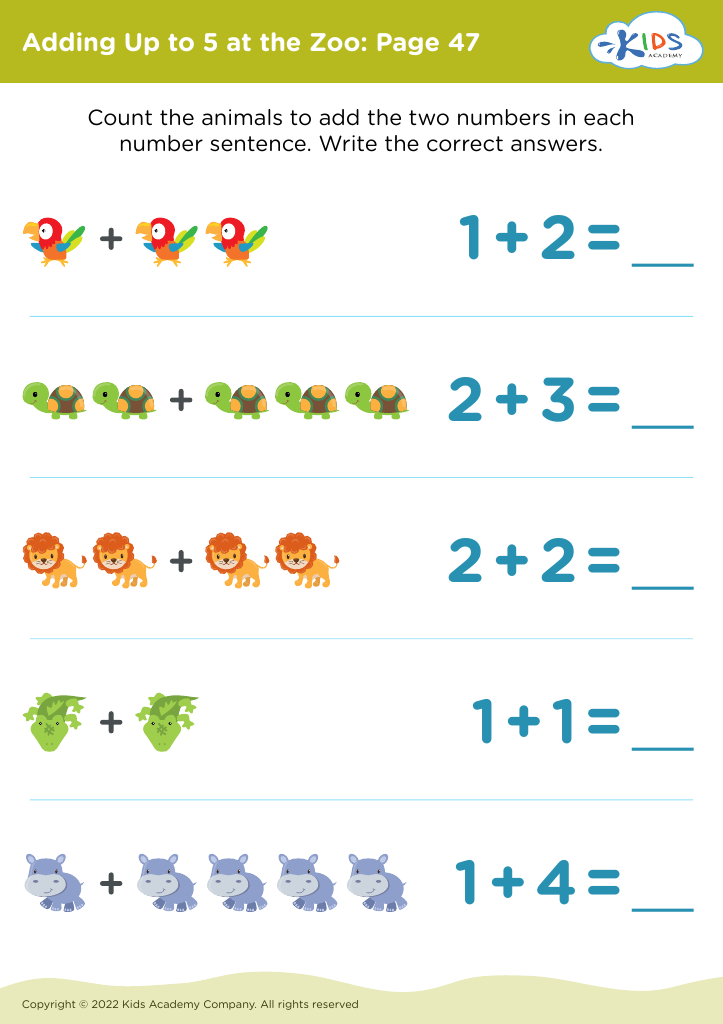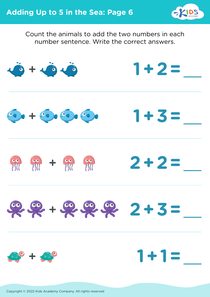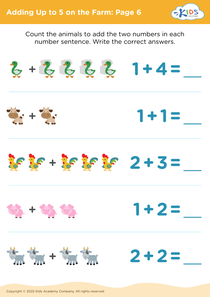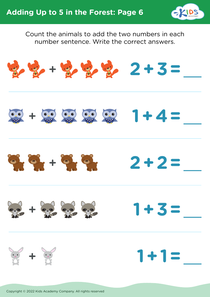Fine motor skills (writing numbers) Adding at the Zoo Worksheets for Ages 3-7
3 filtered results
-
From - To
Discover the perfect blend of learning and fun with our "Fine Motor Skills (Writing Numbers) Adding at the Zoo Worksheets for Ages 3-7." These engaging activities are designed to strengthen fine motor skills while introducing basic math concepts. Kids will enjoy practicing number writing and addition through whimsical zoo-themed exercises. Each worksheet helps refine hand-eye coordination, pencil control, and numerical understanding. Ideal for young learners, these worksheets offer an enjoyable and educational experience, setting a strong foundation for future mathematical success. Tailored for children aged 3-7, they ensure learning is exciting and rewarding at every step!
Fine motor skills are essential for young children's development, particularly for tasks like writing numbers. These skills involve the coordination of small muscles, particularly those in the hands and fingers, which are crucial for performing precise tasks. For ages 3-7, developing fine motor skills lays the groundwork for academic success and daily life activities.
Parents and teachers should prioritize fine motor skills for several reasons. Firstly, well-developed fine motor abilities are foundational for writing numbers and letters legibly. This fundamental skill directly impacts a child's ability to perform academically once they start formal schooling. Moreover, as children learn to write numbers, they practice essential cognitive skills like counting, sequencing, and recognizing patterns, which are vital for early math education.
Introducing activities such as "Adding at the Zoo" can make learning engaging and relevant. Such thematic activities capture children's attention by integrating their interests with educational content, fostering both fine motor coordination and cognitive development. For instance, counting animals and writing numbers in a zoo setting make abstract concepts concrete and enjoyable.
Moreover, strengthening these skills early on enhances children’s independence and confidence, as they are better prepared for tasks like dressing themselves, using utensils, and participating in art and play activities. Overall, prioritizing fine motor skill development through playful, themed activities like those involving zoo animals is a holistic approach to fostering both academic and everyday practical competencies in young learners.
